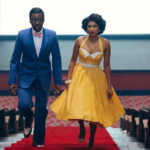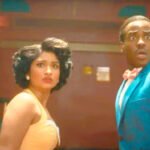The recent controversy surrounding the AI-generated poster for the upcoming Fantastic Four movie has ignited a fierce debate about the role of artificial intelligence in creative fields. It’s not just about a single image; it’s a symptom of a larger anxiety about the future of art, design, and the very skills that define human creativity.
This echoes broader discussions about AI’s impact on employment and the potential for technological advancement to erode essential human capabilities, as explored in a recent Kasterborous podcast conversation between James McLean and Christian Cawley.
The Fantastic Four poster, intended to evoke a retro, comic-book aesthetic, instead sparked outrage among artists and fans alike. Many criticized its perceived lack of originality, its reliance on generic AI-generated imagery, and, most importantly, the implication that human artists were being replaced by algorithms. This controversy isn’t an isolated incident. It’s a microcosm of the larger anxieties surrounding AI’s encroachment into creative spaces.
Today, AI is spreading everywhere
As McLean pointed out in the podcast, AI is becoming increasingly integrated into the tools we use every day. “While AI is an automated system,” he explained, “it doesn’t require, or certainly at the moment it doesn’t have that sort of…tackle.” He went on to discuss the energy consumption of AI, questioning whether the convenience it offers is always justified. But beyond the practical considerations, McLean’s comments touch on a deeper issue: the potential for AI to diminish our own skills and abilities.
“Logos designed in the 70s, in terms of design and craft, are often far better than those done in the 90s. That sort of basic core skill is kind of lost because it’s now done by a computer.”
His anecdote about a TV commercial, where someone uses their phone to find a restaurant, highlights this concern. “I saw an advert the other day on TV and it was like someone having to say into the mobile phone, you know, find me the best restaurant in the area. And you just feel like that voice should come back and just say, ‘f***ing do it yourself mate.’ You know, it’s easy enough.” This reliance on technology for even simple tasks, he argues, can lead to a kind of “infantilization,” where we become overly dependent on automated systems.
The Fantastic Four poster controversy taps into this same anxiety. Are we becoming so reliant on AI-generated imagery that we lose the ability to appreciate, or even create, original art? Are we sacrificing the unique vision and skill of human artists for the sake of efficiency or novelty?
Losing skills to technology
The fear is that just as McLean describes the loss of design skills due to readily available font packages and software, we risk losing core artistic skills if we rely too heavily on AI.

“You need to have people skilled to be able to do that,” McLean argued in the podcast. “You can say that with society, with before AI, with Adobe Photoshop and the like, you can see that as being a risk. We’ve talked about this… Logos designed in the 70s, in terms of design and craft, are often far better than those done in the 90s. That sort of basic core skill is kind of lost because it’s now done by a computer, [overseen] by designers who perhaps aren’t so familiar with the nuances of design because they’ve not needed to be, because they are just buying font packages and placing them.”
The “Doom” of the Fantastic Four poster
The Fantastic Four poster serves as a stark reminder of these risks. It’s a conversation starter about the future of creativity in the age of AI. While AI can be a powerful tool, it’s crucial to remember that it’s just that – a tool. It should augment human creativity, not replace it entirely.
The challenge lies in finding a balance between embracing technological advancements and preserving the essential skills and artistic vision that make us human. The Fantastic Four controversy isn’t just about a bad poster; it’s about the kind of future we want for art, design, and the creative spirit itself.
Discover more from Kasterborous
Subscribe to get the latest posts sent to your email.









